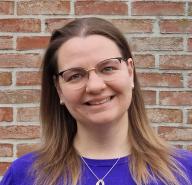 \
&
Contact us
\
&
Contact us
 \
&
Contact us
\
&
Contact us
About the programme
Under Specific Objective 1 – High-Performance Computing (HPC) Digital Europe aims to strengthen the EU’s supercomputing and data processing capacities.
Actions under this Specific Objective are mainly managed by the Euro HPC Joint Untertaking (EuroHPC JU). EuroHPC issues yearly work programmes indicating actions that are planned within Digital Europe, among other programmes.
For the period 2025-2027, activities will focus on the following activities:
Additionally, budget for HPC is foreseen under the 2025-2027 main work programme for the completion of the main components of Destination Earths, aiming to achieve a full digital twin of the earth by 2030.

marie.timmermann@fwo.be
+32 2 550 15 59
Find the contact info on the site of WEWIS
The National Contact Points (NCPs) provide support, guidance, and practical information to potential applicants, helping them navigate funding opportunities and application processes.
The Programme Committee (PC) members represent their country in decision-making about the work programmes, evaluate implementation, and provide strategic input on priorities and calls.
Infosheets contain edited content on aspects related to this programme. They are reviewed at least yearly.
Related links are easy pointers towards external information. We curate the list, but are not liable for the destinations.
Documents contain additional information related to this programme, and are similar to related links.
Textgain is a Flemish SME and a partner in Digital Europe project BENEDMO, which answered to call ‘European Digital Media observatory (EDMO) - National and multinational hubs’.
Its task within the project is to further develop technologies to effectively detect sources of polarisation and disinformation, allowing journalists and moderators to quickly mitigate the harmful effects of such messages.